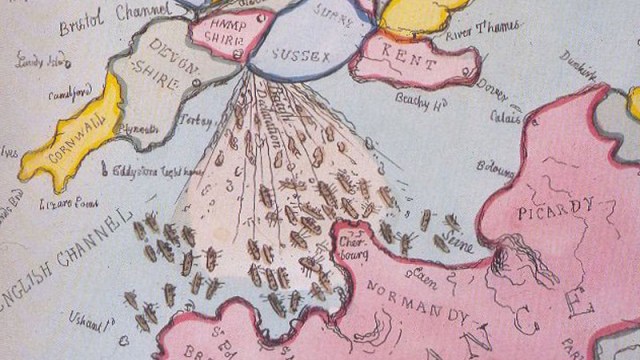176 – Wallonie-sur-Mer
n
It’s more than three months now since Belgium held a general election, and the federal kingdom by the North Sea is still without a national government. The impasse following the June 10 ballot is due to the seemingly insurmountable differences between Flemish and Walloon politicians.
n
Belgium has always been a difficult proposition with semi-continuous linguistic strife between Dutch-speaking Flemings (roughly 60% of the population) and French-speaking Walloons (almost 40%) ever since its inception in 1830. The gap between both sides has widened considerably since the start of a gradual process of federalisation in the early nineteen seventies.
n
To offset the oppositional nature of this essentially binary federation, the Belgian federal system is extremely intricate, balancing territorial and personal definitions of citizenship. The result is no less than six governments:
n* one for Wallonia (dealing with territorial aspects such as land management);
n* one for the French-speaking community (competent in personal matters such as education and health care);
n* one for Flanders (which merged the personal and territorial competences);
n* one for Brussels (territorial; as Brussels is officially bilingual, the Flemish and Francophone governments both exert their personal competences there);
n* one for the tiny German-speaking minority in the east of Wallonia (personal, since the Walloon government is territorial);
n* and the federal government, to be composed of equally many Francophone as Flemish ministers. The prime minister, although necessarily either Dutch- or French-speaking, must be considered as a linguistic eunuch.
n
All this can’t hide that the main problem in Belgium remains the fact that Flemings and Walloons (or at least their politicians) can’t get along. In the best of times, Flanders and Wallonia co-exist by ignoring each other, in the worst of times they clash because they have two different outlooks on what Belgium ought to be. Flemish politicians insist on further institutional reforms, delegating more power to the sub-nations, to improve good governance. Francophone politicians see this as creeping separatism and vehemently oppose any reform that could be seen as damaging the Belgian state (or Francophone interests).
n
The resulting gridlock for some observers indicates that Belgium has reached the end of its tether. Although the present impasse seems to meet with apathy from the general public, this is not an improbable proposition – were it not for Brussels. The capital of Belgium isn’t just also the capital of Europe: it’s also the capital of Flanders, which maintains its parliament there. But 85% of the bruxellois are Francophone, and thus not inclined to think kindly of incorporation into Flanders. Annexation by Wallonia is rather impractical, as Brussels is completely surrounded by Flemish territory.
n
Maybe an international task force of chess grand-masters and Nobel prize winners under the auspices of the Dalai Lama could find a solution everybody could live with. Barring that, another possibility would be to let nature take its course: if global warming will indeed lead to higher sea levels and if Belgium could wait another couple of thousand years for its next government, that is.
n
This map outlines the latter solution to the Belgian conundrum: just wait until almost all of low-lying Flanders is submerged, leaving only some of its higher parts above water, i.e. the Heuvelland (‘Hill Country’), the Ile de Grammont (the ‘Isle of Geraardsbergen’) and bits of and near Limburg, the Flemish province furthest from the coast (with ‘Hasselt-sur-Mer’ and ‘Tirlemont-les-Bains’). That this map probably is the work of a Francophone Belgian, can further be deduced from the fact that Brussels is not submerged, but connected to Wallonia via a land corridor…
n
This map was sent to me by Bruno Pragnell, who could not vouch for its origins and who finds the joke “probably a bit too cruel” to be suitable for this website. Not at all, Bruno! I’m hopeful Flemings have enough sense of humour (or swimming skills) to not be insulted by this cartographic cartoon.
n






